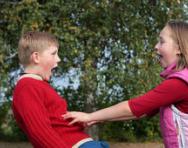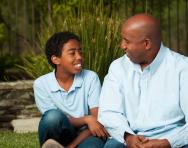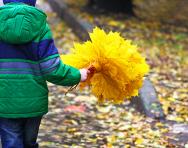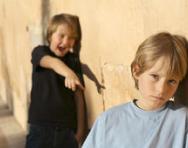Understanding child to parent abuse

Every family goes through rocky patches, and it’s natural to feel challenged by your child’s behaviour at times. But in some cases, these tensions can escalate into a more serious situation known as child to parent abuse (CPA).
It’s estimated that up to 10% of families experience child to parent abuse. According to recent data, incidents that the police were involved in have doubled since 2015, although many go unreported.
What is child to parent abuse?
Although it’s a hard concept to accept, CPA is a form of domestic abuse. It encompasses a range of behaviours, including:
- Physical abuse: hitting, kicking, biting, hair-pulling
- Emotional abuse: name-calling, threats, coercion, spreading rumours about the parent
- Financial abuse: stealing, running up bills in the parent’s name, forcing them to buy items they can’t afford, forcing them to buy alcohol or drugs
- Sexual abuse (in 4% of families who experience CPA according to research by PEGS)
Currently, the Home Office uses the term Adolescent to Parent Violence or Abuse (APVA). However, campaigners want this terminology to change to CPA, reflecting the fact that it doesn’t just happen in families with teenagers.
‘It can occur with children of any age,’ says Michelle John, a leading campaigner with PEGS: a not-for-profit organisation supporting parents with CPA. ‘We see families where the abuse began when the child was as young as five, and more than half had children below the age of 12 when the behaviour started.’
Boys are more likely to engage in CPA than girls, and mothers are more likely to be on the receiving end than fathers, but there are many exceptions to this rule. ‘We see a substantial proportion of cases where the male parent is targeted, or where a female child is perpetrating the abuse,’ Michelle says.
Sibling abuse is also likely in families where CPA is happening, and behaviour can also be shown by adult children towards their parents.
What’s the difference between normal family tensions and child to parent abuse?
Arguments and disagreements happen in every family, but CPA is an escalation of these normal situations.
‘The child may begin pushing their parent during an argument, but over time, this may escalate to punching or kicking and causing real physical harm,’ says Michelle.
‘Similarly, rather than calling their parent a name or refusing to do what they’re asked, the child might threaten to kill their parent, siblings or a family pet, and even research ways to do so.’
A major indication is fear, with parents often saying they’re walking on eggshells to avoid triggering an outburst.
‘If you’re in fear of your child’s behaviours or reactions, and you avoid saying or doing certain things because of this fear and to keep yourself or others in the home safe, this may indicate CPA,’ Michelle explains.
For instance, you might be scared to ask your child to tidy their room if they’re likely to respond by throwing and breaking things, or you might avoid social occasions, fearing that they might verbally or physically attack you in front of others.
Why does child to parent abuse occur?
The factors that may lead to CPA are complex. Often, there’s no obvious cause, and it’s also common for there to be several different risk factors in combination, such as:
- Child sexual exploitation
- Child criminal exploitation
- Societal factors such as the stereotyping of women, access to pornography, and exposure to violence (not necessarily within the family)
- The child having mental health problems
- The child having experienced trauma
- Special educational needs like autism
- Drug or alcohol misuse
Parents often worry that CPA is caused by ‘bad parenting,’ and the attitudes and responses of professionals and society in general can reinforce this belief, but it’s important not to blame yourself. Many families have more than one child, but only one displays these behaviours, showing that there’s no definitive link with how a child is parented.
The impact of CPA
Unsurprisingly, CPA can have a profound effect on the whole family. A survey by PEGS showed that 90% of parents feel isolated and alone, 78% feel guilty, 77% feel scared, and 53% feel humiliated.
‘It has a huge emotional impact on the parent,’ says Michelle. ‘They often become isolated from friends and family due to the abusive behaviours. Relationships can break up, and 60% of parents have to reduce their working hours or even leave work because of CPA.’
Siblings can also be affected, whether by witnessing the abuse, seeing the impact on their parent, or being physically or emotionally attacked themselves.
Although it may be hard to feel sympathy for the child who abuses their parent, it’s important to be aware of their feelings, too. ‘While some may blame the parent for their behaviour, others may feel guilt, shame or embarrassment,’ Michelle explains.
‘They may have difficulty understanding how their actions impact others, especially if they have an autism spectrum disorder.’
What to do during an incident of child to parent abuse
When an incident is happening, it’s important to remain safe and de-escalate the situation where possible. It’s best to do this by removing yourself to a place of safety, rather than trying to negotiate with or restrain your child.
This might mean you go into a room that you can lock, go into the garden and lock the doors so your child can’t get out and hurt you or themselves, or knock on the door of a neighbour who has agreed to give you a safe place.
Other ways of de-escalating an incident might include speaking calmly rather than getting drawn into a shouting match, avoiding confrontational body language like intense eye contact or physically trying to block their way, and giving them space to let their anger run its course.
It’s also important to pick your battles. For example, you might decide to ignore ‘low risk’ behaviours like your child slamming doors if challenging them may make them verbally abusive. Or you might turn a blind eye to bad language, but draw the line with physical acts like hitting or damaging property.
Usually, it’s best to wait until the incident has calmed before you try to talk to your child. ‘When things have settled, you can try to discuss what happened, in line with their developmental age and needs, listening to them and allowing them the time to explain what they felt happened,’ advises Michelle.
Calling the police
No parent wants to call the police on their child, but if their behaviour is putting you or anyone else in immediate danger, it’s time to call 999. This could include if they’re physically attacking you or someone else, are damaging property, or if the situation becomes otherwise so extreme that you need assistance
It doesn’t necessarily mean your child will end up with a criminal record (indeed, children under the age of 10 are not capable of criminal responsibility), or that they’ll be removed from your care, but the police can help to calm the situation, remove you or other people from the danger, and speak to your child about their behaviour once the situation has calmed down.
You could also phone 101 if you need help from the police but it’s not an emergency, for example if your child has stolen money, credit cards or other possessions.
Writing a safety plan
If CPA is a problem in your family, PEGS suggests writing a safety plan that outlines what you will do if your child is behaving abusively. You could make this on your own, with other family members, or with a professional such as a PEGS support worker, a social worker or a counsellor.
A safety plan might include:
- Identifying safe spaces to go to, both in and out of the home
- Teaching others in the home how to raise an alarm if you cannot
- A code word that you can share with people you trust and that you can use if you are in danger
- A log of incidents
- Useful phone numbers such as helplines, your child’s school, taxi/train/bus companies, family or friends who can support you
- Where you can keep a small stash of money and spare keys if you need to get away from the home quickly
- What you can do to reduce the risks to your child, yourself or other members of the family, such as keeping kitchen knives locked away
- When you will call 999
When and where to get help with child to parent abuse
Parents can understandably be reluctant to ask for help with CPA, but it’s vital to reach out, even if initially, it’s only to friends or wider family. ‘It’s never okay for someone to be violent, even if it’s your own child, so the behaviour needs to be addressed: it will not get better on its own,’ says Michelle.
If you feel you need professional support, your first port of call is likely to be your GP who can discuss your options.
It’s also worth speaking to your child’s school. There are lots of people who can help; some of these are based within schools, while others will involve the school making a referral. Ideally, these will involve the entire family, with a comprehensive package of input and support.
Some of the support options that you and your child may be able to access through their school include:
- SENCO
- Pastoral lead/inclusion coordinator
- School nurse
- School counsellor
- Educational psychologist
- Children’s services (social services)
- Workshops or courses providing parental support
- Child and Adolescent Mental Health Services (CAMHS)
There are also many support groups, charities and other organisations that can help you and your family, including the abusive child, such as:
- PEGS, which offers one-to-one support, counselling, drop-in groups and support programmes depending on your family’s needs
- Family Lives: a confidential and free helpline service
- Refuge
- Who’s in Charge: a nine-week programme for parents experiencing CPA
- Samaritans
- Childline
- YoungMinds
- YoungSibs: a support service for children with a disabled sibling
Reaching out can be daunting. You might fear consequences such as your child getting a criminal record or being taken away from the family, but these are absolute last resorts. ‘Social services will only look at separating a family if there is no other option and should work with families to ensure they remain under the same roof,’ says Michelle.
Children’s services should understand that it’s the child’s behaviours that parents don’t want, not the child themselves, although for some families, the safest – or indeed only – way they can have a healthy relationship is if the young person lives outside the home.
Above all, remember than in many cases, with support, families are able to successfully tackle CPA. ‘If the right input is given, CPA can absolutely be resolved, and the family can go on to rebuild their relationships and improve their collective wellbeing,’ Michelle says.
‘Knowing that I’m not alone has made a huge difference’
One mum shares her experiences with child to parent abuse
‘My child was 13 when she started to be abusive. It started off with pushing boundaries, but it soon escalated into physical violence, emotional abuse, controlling, intimidation and threats, including threats to kill me.
‘We stopped going out as a family and didn’t dare have anyone over. I had to give up my job and was threatened with fines as she stopped going to school.
‘Asking for help was not easy, and even though my daughter had made threats and researched how to kill me, we were given no support. Eventually, the incidents escalated to the point that I made the heartbreaking decision to ask the local authority to accommodate her.
‘PEGS has been a lifeline: just knowing that I’m not alone and it’s not my fault has made a huge difference.
‘To any parent out there who’s in a similar situation, I would say to reach out to those around you. Talk your child’s school, their GP, and even the neighborhood policing team: not to criminalise your child, but to see what support they can offer.’

Give your child a headstart
- FREE articles & expert information
- FREE resources & activities
- FREE homework help








